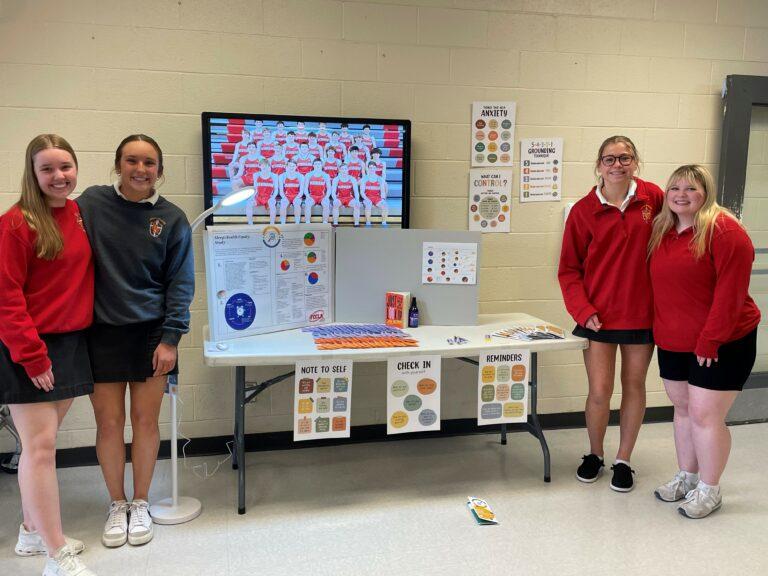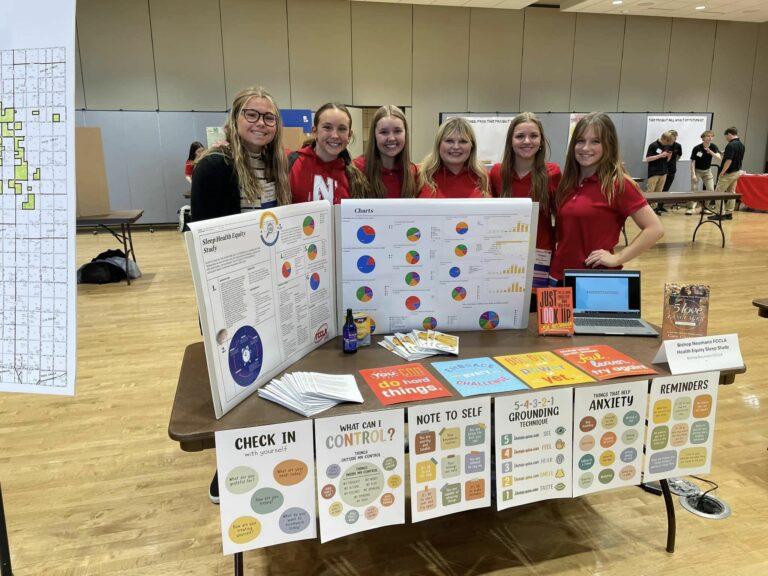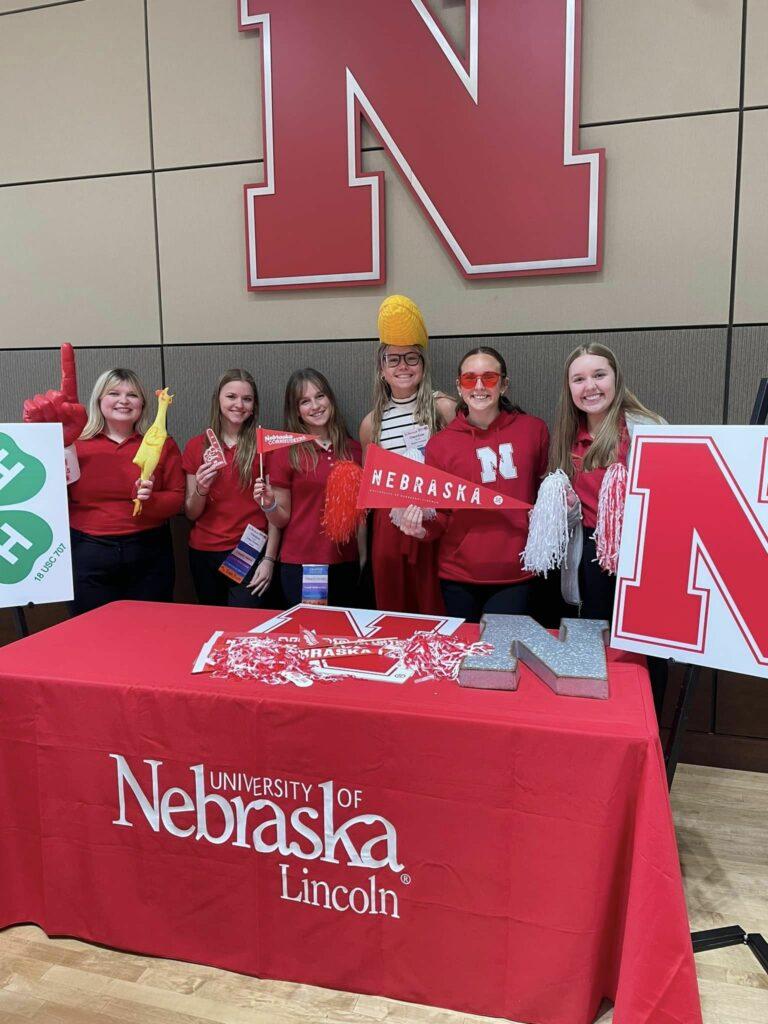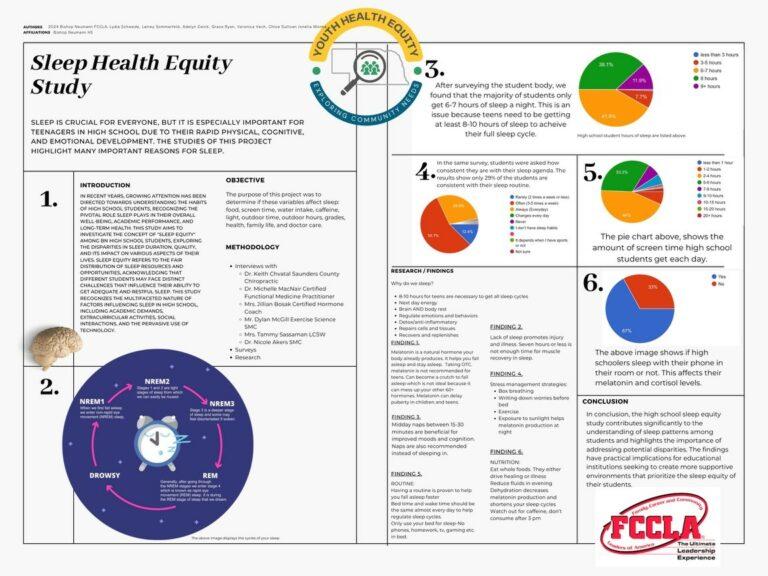FOR IMMEDIATE RELEASE: Youth Participate in Youth Health Equity Showcase
Youth and communities are facing an evolving set of health issues, including vaping, mental wellness and health, traffic safety and driving, food security and nutrition, teen sleep habits, weight management and physical activity.
Since October, youth and their community coaches from across Nebraska have been investigating health issues in a project known as the Youth Health Equity Project which is jointly sponsored by Nebraska Extension, Nebraska Department of Health and Human Services, Division of Public Health, Office of Health Disparities, and Nebraska Family Career Community Leaders of America. Over the last seven months, over 200 youth participated in the Youth Health Equity Project with guidance from 25 adult community coaches who nurtured and assisted the youth-led project.
On Monday, April 8th over 95 youth and their community coaches presented their health research projects during the Youth Health Equity Project Showcase at the University of Nebraska-Lincoln. During the showcase youth had an opportunity to interact with University of Nebraska- Lincoln faculty, administrators and local community members about their projects. Youth also had the chance to speak with University of Nebraska- Lincoln admissions about college majors and the admission process.
Youth attending the showcase from Bishop Neumann were Lydia Schwede, Lainey Sommerfeld, Veronica Vech, Chloe Sullivan, Adelyn Zwick and Grace Ryan.
BN Health Equity Sleep Study was conducted by a FCCLA team at Bishop Neumann Catholic High School in Wahoo, Nebraska. They explored the issue of whether students are getting enough sleep and the factors that contribute to or hinder teen sleep. The study involved community partners such as chiropractors, medical professionals, and the library. It addressed various aspects of sleep including its importance for overall health, recommended sleep cycles for teens, the role of routine, nutrition, stress management, hormones, and the impact of light on sleep quality.
Key findings and recommendations include:
- Importance of sleep: Sleep is essential for physical and mental well-being, energy levels, emotional regulation, detoxification, and tissue repair.
- Routine: Consistent bedtime and wake time are crucial for regulating sleep cycles.
- Nutrition: Whole foods, hydration, and limiting caffeine intake are important for quality sleep.
- Stress management: Techniques such as box breathing, exercise, sunlight exposure, and meditation can help manage stress, thereby improving sleep.
- Hormones: Melatonin, cortisol, serotonin, leptin, ghrelin, and adenosine play crucial roles in sleep regulation.
- Light: Blue light, especially in the evening, can disrupt melatonin production and hinder sleep.
- Recommendations for the school: Installing fluorescent light covers, providing hydration stations, mental health resources, and implementing stress management education.
- Educational initiatives: House time videos, stress management classes, and promoting sleep aids like chamomile tea and essential oils. Clink to our video: https://youtu.be/OLTcykrPf2w?si=bmBXQkUBW2kt5-lo
- Other school ideas: Advocating for later school start times, incorporating nap times or outdoor walks, and avoiding late-night events.
Overall, the study emphasizes the importance of addressing sleep issues among our students and suggested practical strategies for improving sleep quality within our school community.
“The Youth Health Equity Project is an excellent example of how three different statewide agencies can come together to provide Nebraska youth a valuable learning experience about public health and local community needs and issues, This project taught youth about data sources, how to conduct research, and how to analyze the data to provide solutions which can improve individual and community well-being,” said Michelle Krehbiel, Youth Development Specialist and professor at UNL. Krehbiel led a team of educational, health, and research professionals that provided leadership for the development and implement of the project. Funding for the project came from the Nebraska Department of Health and Human Services Division of Public Health, Office of Health Disparities.
More information about the Youth Health Equity Project can be found at: https://sites.google.com/nebext.org/youthhealthequity/home









